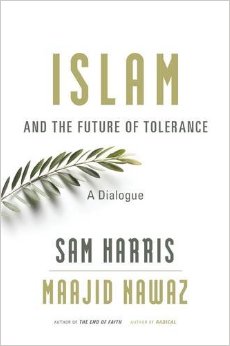 Towards the end of the discussion between Sam Harris and Maajid Nawaz in Islam and the Future of Tolerance Nawaz says to Harris:
Towards the end of the discussion between Sam Harris and Maajid Nawaz in Islam and the Future of Tolerance Nawaz says to Harris:
I appreciate your recognition that your wording has often contributed to this “clash of civilizations” narrative. . . . [W]e are duty bound to try and minimize it [i.e. the tendency of many people to hear only what they expect to hear from a given speaker] through careful wording, so thank you. (pp. 115-116, my own bolding in all quotations)
It appears that Maajid Nawaz has just heard Sam Harris admit that he has carelessly fanned the popular myth of the “clash of civilizations” scenario, the popular view that Islam and the West are incompatible and conflict is inevitable when they meet. Unfortunately it seems to me on reading this dialogue that Nawaz himself has at times tended to hear “only what he expected to hear” from Harris in his sincere efforts to establish a constructive dialogue.
But first, note that Harris truly did admit that sometimes he had contributed to that unhelpful “clash of civilizations” narrative:
Another thing I think we should discuss is the tension between honestly confronting the problems of conservative Islam, Islamism, and jihadism and feeding the narrative that “the West is at war with Islam.” I admit that I have often contributed to this narrative myself, and rather explicitly. (p 113)
Perhaps Harris is recollecting what he wrote in The End of Faith on pages 109
.
and 130:
That is an unambiguous assertion that (1) we are at war with effectively the entire Muslim world and (2) bloodshed is (with near mathematical certainty) the inevitable consequence when our Western culture meets a Muslim culture.
But no, that’s not what Sam Harris says he meant when he is talking with Maajid Nawaz — and that raises the question of whether Maajid, with the very best of intentions, was too eager to stop hearing after he heard what he wanted to hear. Here is how Harris followed his remarks in Islam and the Future of Tolerance: Continue reading “Sam Harris and Maajid Nawaz in Discordant Dialogue”
